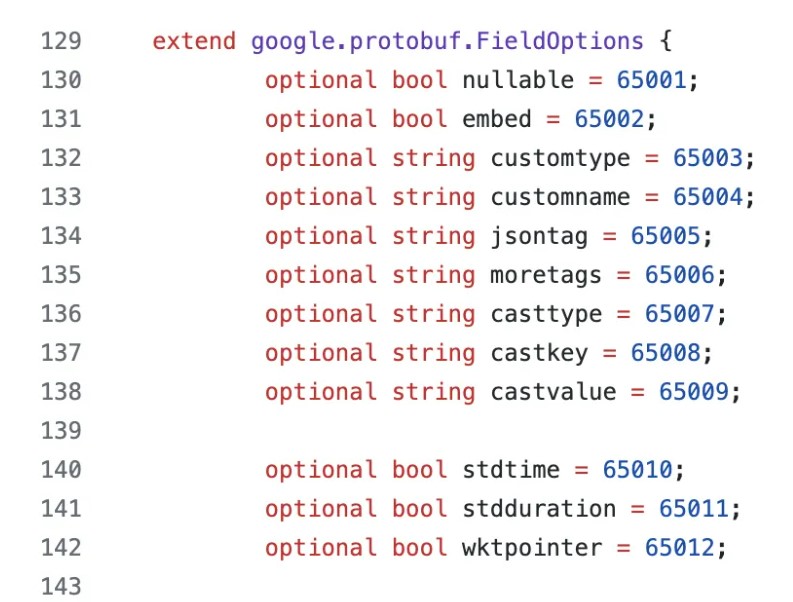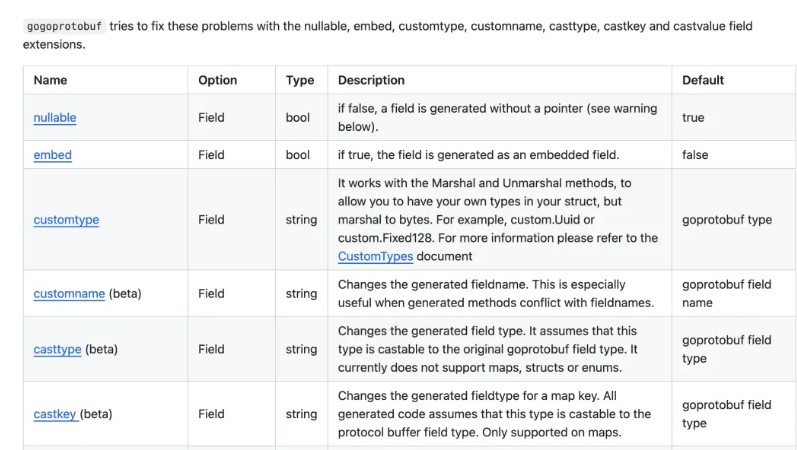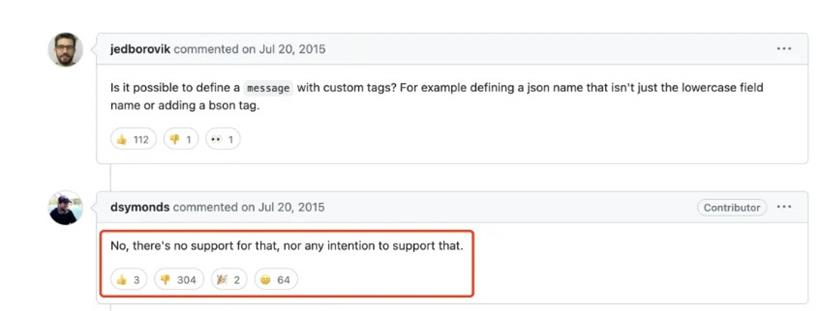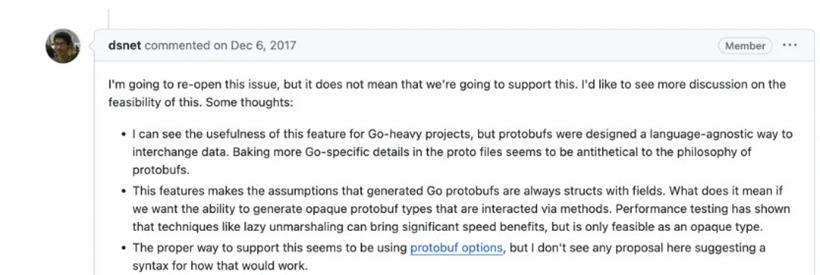- 联系我们
- duidaima.com 版权声明
- 闽ICP备2020021581号
-
 闽公网安备 35020302035485号
闽公网安备 35020302035485号
 闽公网安备 35020302035485号
闽公网安备 35020302035485号



message Person {
string name = 1;
int32 id = 2 [(gogoproto.jsontag) = "id"]; // Unique ID number for this person.
string email = 3;
enum PhoneType {
MOBILE = 0;
HOME = 1;
WORK = 2;
}
message PhoneNumber {
string number = 1;
PhoneType type = 2;
}
repeated PhoneNumber phones = 4;
google.protobuf.Timestamp last_updated = 5;
}
通过 protoc 和 plugin 生成后的 Go 代码:type Person struct {
Name string `protobuf:"bytes,1,opt,name=name,proto3" json:"name,omitempty"`
Id int32 `protobuf:"varint,2,opt,name=id,proto3" json:"id"`
Email string `protobuf:"bytes,3,opt,name=email,proto3" json:"email,omitempty"`
Phones []*Person_PhoneNumber `protobuf:"bytes,4,rep,name=phones,proto3" json:"phones,omitempty"`
LastUpdated *timestamppb.Timestamp `protobuf:"bytes,5,opt,name=last_updated,json=lastUpdated,proto3" json:"last_updated,omitempty"`
}
生成后的结构体中的 Id 字段,json tag 值为 id,没有了 omitempty。可以解决很多同学在与前端对接时的一些烦恼。



// file: test.proto
syntax = "proto3";
package pb;
option go_package = "/pb";
message IP {
// @gotags: valid:"ip"
string Address = 1;
// Or:
string MAC = 2; // @gotags: validate:"omitempty"
}
通过 protoc 和 plugin 生成后的 Go 代码:type IP struct {
// @gotags: valid:"ip"
Address string `protobuf:"bytes,1,opt,name=Address,json=address" json:"Address,omitempty" valid:"ip"`
}
可以明确看懂 json tag 多了 valid:"ip",符合我们在 proto 文件中声明的注解诉求。通过两篇文章梳理下来,对于整个前因后果和功能特性,我们都有了相对全面的学习和了解了。官方 golang/protobuf 固然有自己的原则,社区也有自己的需求。开源的项目过大了,长年累月下来会难维护。可能像 protoc-go-inject-tag 这种较为单一职责的开源库,会活的更好,也会更好找到新的人衔接。也是一个不错的方向。
参考资料
[1]gogo.proto: https://github.com/gogo/protobuf/blob/master/gogoproto/gogo.proto
[2]More Canonical Go Structures: https://github.com/gogo/protobuf/blob/master/extensions.md#more-canonical-go-structures
[3]protoc-go-inject-tag: https://github.com/favadi/protoc-go-inject-tag